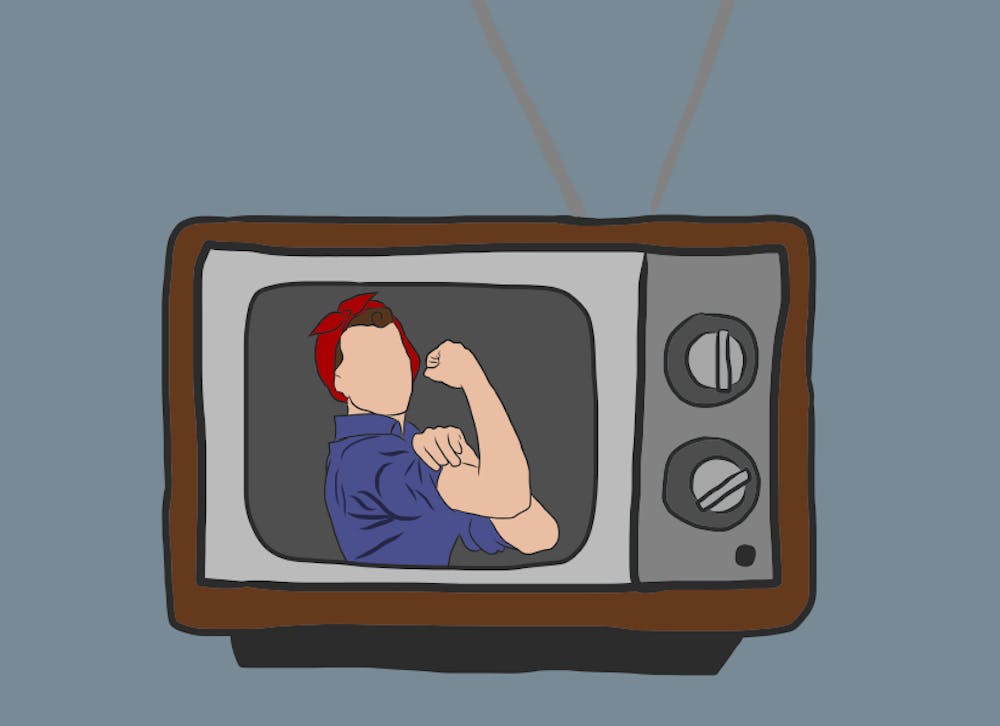It is important to be cognizant of the often flawed themes present in daily media, especially in terms of gender representation.
As technology becomes more advanced, people grow to depend on it in their everyday lives, whether they are communicating with others or just browsing the internet. This, in turn, shapes our attitudes and viewpoints.
The media is practically inescapable, especially at ASU where online research is encouraged for almost every class. With such a large medium, it is important to be critical of the messages being projected to viewers — especially those depicting women.
Women are consistently portrayed in domestic roles in the media or seen as an accomplice to their male counterpart, who is featured in a position of power.
“The constant representation of women in less powerful, and often highly sexualized and eroticized roles — it’s a very limited range of representation,” Lindsey Mean, associate professor of social and behavioral sciences at ASU said. “It’s necessary to educate people because we consume in both passive and active ways, and there’s always a question about how active some of the consumption of media is.”
According to the Pew Research Center, four in 10 people choose to read online news, and 57 percent of adults regularly watch news on television. Almost 97 percent of U.S. homes contain a television set.
“One of the problems that we have is that we tend to think of entertainment and entertainment industries quite often as a benevolent form," Mean said. "It’s there to make money. It’s not there to educate us, but it is an enormous part of our education.”
Gender roles are constantly reinforced throughout the media, which influences the highly impressionable children and young adults as they develop and form ideas of their own.
If men are portrayed in the media as being weak or feminine for showing emotion, then adolescent males will assume that is a sign of weakness and try to suppress an entirely normal biological function.
If women are represented in the media as being a 'bitch' for being assertive in the workplace, then people assume confident women in leadership roles are bossy or authoritarian.
Women have struggled to break through into male-dominated careers for decades due to stereotypes fostered by the media's influence.
TIME has recently created a new multimedia project covering 46 women who broke the gender barriers in their professional fields, ranging from the “first woman to build a $500 million company from a web series” to the “first woman to win a major party’s nomination for President."
TIME is taking a step in the right direction by portraying an inclusive media, a direction that other companies should follow.
However there are still troubling themes present in popular media such as “normalized violence against women,” which portrays women as incompetent and depicts a dependence on men for survival.
As part of the largest demographic, millenials have the potential to fight these norms and create cultural change.
It is the responsibility of everyone to criticize the problematic messages being presented by the media, to read into the themes and reject the stereotypes.
Reach the columnist at hncumber@asu.edu or follow @hncumber on Twitter.
Editor’s note: The opinions presented in this column are the author’s and do not imply any endorsement from The State Press or its editors. Want to join the conversation?
Send an email to opiniondesk.statepress@gmail.com. Keep letters under 500 words and be sure to include your university affiliation. Anonymity will not be granted. Like The State Press on Facebook and follow @statepress on Twitter.




